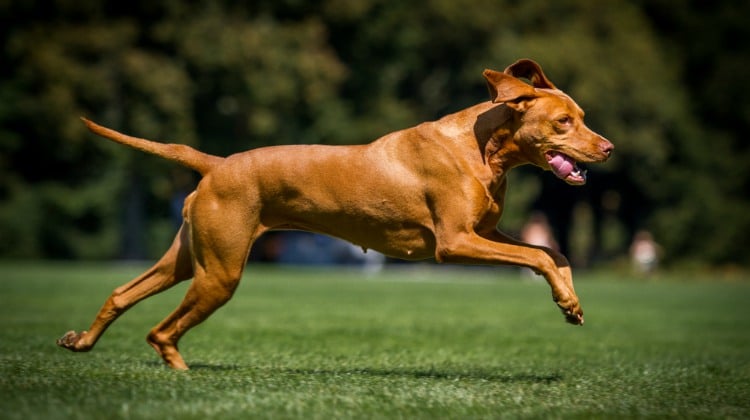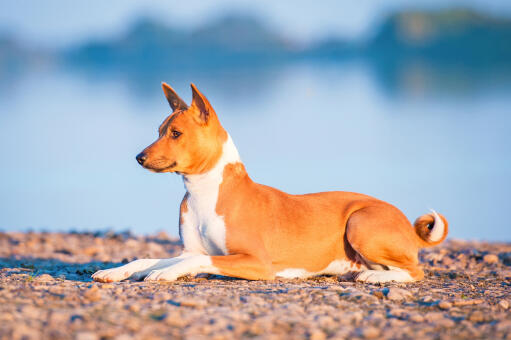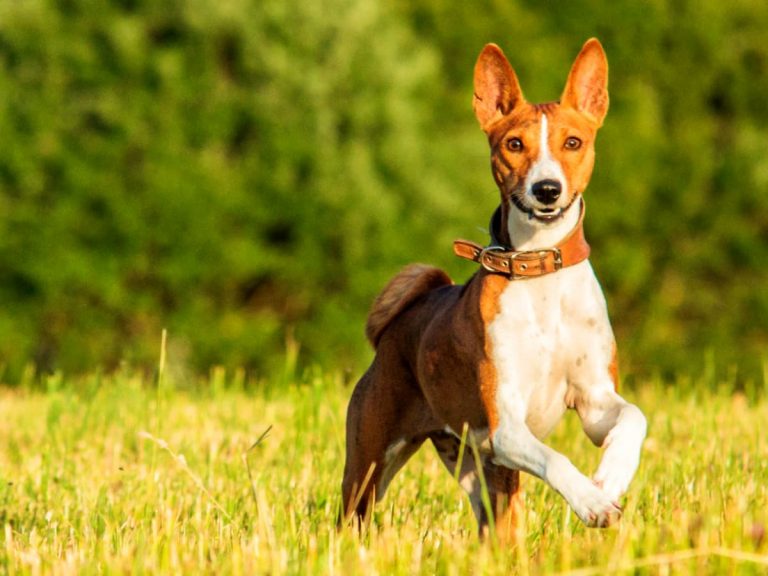About African dog breeds
African dog breeds encompass a diverse array of companions, each with distinct qualities. The regal Saluki offers elegance but demands ample attention due to its high-maintenance needs. Rhodesian Ridgebacks thrive with mental and physical stimulation, benefiting from varied activities. Basenji’s gain glossy coats and improved health from raw diets, while the Pharaoh Hound requires a tall, secure fence to match its agility. Socializing the aloof Azawakh puppy demands gentle persistence. These breeds embody Africa’s rich heritage and unique challenges, making them rewarding choices for dedicated and informed dog owners.
Tips for socializing an aloof Azawakh puppy
Socializing an aloof Azawakh puppy requires patience, consistency, and a gentle approach. Azawakhs are known for their reserved nature, so early and positive socialization is crucial to ensure they grow up to be well-adjusted and confident dogs. Here are some tips to help you socialize your Azawakh puppy effectively:
Start Early: Begin socialization as early as possible, ideally when your puppy is between 3 to 16 weeks old. This is the critical window for puppies to develop positive associations with new experiences, people, and environments.
Positive Experiences: Expose your puppy to a wide range of positive experiences. Introduce them to various people, including different ages, genders, and ethnicities. Also, expose them to other dogs, animals, different sounds, sights, and environments.
Go Slow: Azawakhs are naturally reserved, so avoid overwhelming them. Start with low-stress situations and gradually progress to more challenging ones as your puppy becomes more comfortable.
Positive Reinforcement: Use treats, praise, and toys to reward your puppy for positive behavior during social interactions. This helps them associate new experiences with positive outcomes.
Safe Playdates: Organize playdates with well-behaved and vaccinated dogs. Monitor interactions closely and intervene if play becomes too rough or overwhelming.
Calm Handling: Gently handle your puppy’s paws, ears, mouth, and body regularly to help them become comfortable with human touch. This will also make grooming and veterinary visits easier.
Obedience Training: Basic obedience commands like “sit,” “stay,” and “come” are essential for your puppy’s safety. Training also helps build a strong bond between you and your puppy.
Desensitization: Gradually expose your puppy to things that might initially cause fear or discomfort, such as car rides, vacuum cleaners, or new surfaces. Pair these experiences with treats and positive reinforcement.
Consistency: Socialization should be an ongoing process. Continue to expose your puppy to new experiences and environments throughout their adolescence and adulthood.
Respect Boundaries: While socializing, be mindful of your puppy’s comfort zone. Avoid pushing them into situations that make them visibly uncomfortable.
Good’N’Fun Triple Flavored Rawhide Kabobs offer a satisfying chew for dogs, combining flavors to entice their taste buds. The variety keeps dogs engaged, and the rawhide promotes dental health. However, be mindful of portion size and supervise during consumption to ensure safe chewing. Click Here.
Keeping rhodesian ridgebacks stimulated mentally and physically
Keeping Rhodesian Ridgebacks mentally and physically stimulated is essential due to their high energy levels and intelligent nature. Here are ways to achieve this balance:
Physical Exercise
Engage them in daily rigorous exercises such as brisk walks, jogging, or off-leash play in a secure area. Incorporate activities like fetch, agility training, and hiking to cater to their athleticism.
Mental Stimulation
Provide interactive toys, puzzle games, and food-dispensing toys to challenge their minds. Teach them new tricks and commands to keep their brains active.
Scent Work
Ridgebacks have a strong sense of smell. Engage them in scent-based games like hide-and-seek with treats or using scent trails.
Social Interaction
Arrange playdates with well-mannered dogs for healthy socialization. Dog parks or obedience classes can provide controlled interactions.
Structured Routine
Consistency in feeding, exercise, and training times helps Ridgebacks thrive. Establish a routine that keeps them engaged throughout the day.
Obedience Training
Enroll them in obedience classes to provide mental stimulation while enhancing their skills and reinforcing the human-dog bond.
Variety
Introduce variety in walks, routes, and activities to prevent boredom. Different environments and experiences keep their interest piqued.
Puzzle Toys
Offer puzzle toys that challenge their problem-solving abilities and keep them occupied when you’re not around.
Positive Reinforcement
Use positive reinforcement techniques to reward good behavior and commands. This keeps them engaged and motivated to learn.
Quality Time
Spend quality one-on-one time with your Ridgeback. They thrive on human interaction and will appreciate the attention.
Good’N’Fun Triple Flavored Rawhide Kabobs offer a satisfying chew for dogs, combining flavors to entice their taste buds. The variety keeps dogs engaged, and the rawhide promotes dental health. However, be mindful of portion size and supervise during consumption to ensure safe chewing. Click Here.
The best type of fence for containing a pharaoh hound
The best type of fence for containing a Pharaoh Hound should be both secure and tall, considering their agility and tendency to chase after scents. Pharaoh Hounds are skilled jumpers and can be quite energetic, so a fence that deters them from escaping is essential. Here are some recommendations:
6-Foot High Fence: A fence at least 6 feet in height is recommended to prevent Pharaoh Hounds from easily jumping over. This height should help contain their natural jumping ability.
No Climb or Solid Material: Opt for a fence material that is difficult to climb, such as vinyl, wood, or metal. Chain-link fences might not be the best choice, as Pharaoh Hounds can use the links for leverage to climb.
Secure Gates: Ensure that gates are securely locked and not easily pushed open. Self-closing and self-latching gates with locks are ideal.
Dig-Proof Base: Some Pharaoh Hounds may have a tendency to dig, so consider extending the fence material below ground or installing a barrier to prevent digging under the fence.
Visual Barrier: If your Pharaoh Hound is prone to being reactive to external stimuli, consider adding visual barriers like privacy slats to the fence to reduce their ability to see potential triggers.
Supervision: Even with a secure fence, it’s a good practice to supervise your Pharaoh Hound when they are outdoors. Dogs can be inventive escape artists, and supervision ensures their safety.
Training and Exercise: Proper training and regular exercise can reduce the likelihood of your Pharaoh Hound attempting to escape. A well-exercised and mentally stimulated dog is less likely to engage in escape behaviors.
Raw food diet benefits for Basenjis dog coat and health
A raw food diet can offer several benefits for Basenjis in terms of their coat and overall health. Basenjis, known for their sleek and short coats, can experience improvements in their coat quality, skin health, and overall well-being with a well-balanced raw diet.
1. Coat Health: A raw food diet rich in essential fatty acids, such as omega-3 and omega-6, can contribute to a shinier and healthier coat. These fatty acids help nourish the skin and promote a lustrous coat.
2. Skin Health: Basenjis may have sensitive skin, and a raw diet can provide nutrients that support skin health. Omega-3 fatty acids, in particular, have anti-inflammatory properties that can help alleviate skin issues like dryness or itching.
3. Reduced Allergies: Some Basenjis may be prone to food allergies. A raw diet eliminates common allergens found in commercial dog food, potentially reducing allergic reactions that can manifest as skin problems.
4. Nutrient Density: Raw diets often include whole foods that are minimally processed, retaining their natural nutrient content. This can provide Basenjis with essential vitamins, minerals, and antioxidants that contribute to overall health, including skin and coat quality.
5. Improved Digestion: A raw food diet can be easier for some dogs to digest, which can have a positive impact on nutrient absorption. When digestion is optimized, it reflects positively on skin and coat health.
6. Dental Health: Chewing on raw meat and bones can help keep teeth cleaner by reducing tartar buildup, contributing to better oral health.
7. Weight Management: A properly portioned raw diet can help maintain a healthy weight in Basenjis, which indirectly supports their overall health, including skin and coat condition.
It’s important to note that a raw food diet should be carefully planned and balanced to ensure all nutritional needs are met. Consulting with a veterinarian or a veterinary nutritionist before transitioning to a raw diet is essential to create a balanced and safe feeding plan tailored to your Basenji’s individual needs.
Good’N’Fun Triple Flavored Rawhide Kabobs offer a satisfying chew for dogs, combining flavors to entice their taste buds. The variety keeps dogs engaged, and the rawhide promotes dental health. However, be mindful of portion size and supervise during consumption to ensure safe chewing. Click Here.
Pros and Cons of owning a high-maintenance Saluki
Owning a high-maintenance breed like the Saluki can be rewarding, but it also comes with certain challenges. Here are the pros and cons of owning a high-maintenance Saluki:
Pros:
Elegant and Graceful: Salukis are renowned for their elegant and graceful appearance, making them a visually striking and beautiful breed to own.
Loyal and Affectionate: Salukis are known to form strong bonds with their owners and can be affectionate and loving companions.
Intelligent: Salukis are intelligent dogs that can excel in various activities such as obedience, agility, and even some forms of dog sports.
Independent: While some may see it as a con, Salukis’ independent nature can also be a pro for experienced dog owners who appreciate a dog that’s not overly clingy.
Cons:
Exercise Needs: Salukis have high energy levels and require regular and vigorous exercise. Without sufficient physical and mental stimulation, they can become bored and restless, leading to behavior issues.
Grooming Demands: Salukis have a short, silky coat, but they can shed a fair amount. They also need regular brushing to maintain coat health.
Prey Drive: Salukis have a strong prey drive due to their history as hunting dogs. This can make them prone to chasing after small animals and being difficult to recall when off-leash.
Sensitivity: Salukis can be sensitive to harsh training methods or loud environments. They respond best to positive reinforcement techniques and gentle handling.
Socialization Challenges: Socialization is crucial for Salukis due to their sometimes-reserved nature. Without proper socialization from a young age, they might become overly timid or fearful.
Training Difficulty: While intelligent, Salukis can be somewhat independent and may not always obey commands immediately. Consistent and patient training is required.
Health Concerns: Like many purebred dogs, Salukis can be prone to certain genetic health issues. Responsible breeding practices and regular veterinary care are important to maintain their well-being.
Owning a Saluki requires dedication, time, and effort to meet their needs for exercise, grooming, and socialization. If you’re willing to invest in these aspects and appreciate the unique characteristics of the breed, a high-maintenance Saluki can become a cherished and loyal companion.
Important Affiliate Disclosure
We at doglinked.com are esteemed to be a major affiliate for some of these products. Therefore, if you click any of these product links to buy a subscription, we earn a commission. However, you do not pay a higher amount for this. Rest easy as the information provided here is accurate and dependable.




